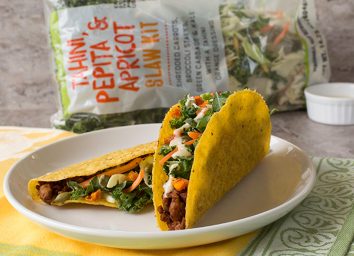The FDA Doesn't Consider Eggs 'Healthy'—Here's Why

As you walk down the egg aisle of your supermarket, you can't miss the plethora of food labels plastered on every dozen. Labels like "antibiotic-free," "cage-free," "natural," and "free-range" are marketing claims food distributors use to describe how farmers raise their chickens. But one label you're not going to find on eggs: healthy.
You heard right. Because the Food and Drug Administration (FDA) is more than 20 years behind in defining guidelines for what "healthy" means for nutrient content claims labels, many processed foods are able to use it. The current guidelines state that "healthy" foods are low in fat and provide beneficial nutrients. Those nutrients include potassium, calcium, iron, and vitamin D.
Think back to 2016 when the FDA asked KIND to remove the word healthy from their food packaging because some of their bars didn't meet their standards. That's why Keri Glassman, MS, RD, CDN, founder of Nutritious Life, has partnered with Jesse Laflamme, the farmer behind Pete and Gerry's Organic Eggs, who filed a petition to the FDA last month to allow eggs to bear the name healthy. "The label reading of eggs is actually really confusing. 'Certified Humane Free Range' and 'Certified Pasture Raised' are the only FDA-approved labels that can go on eggs, in addition to USDA organic," Glassman says.
Cracking the Code on Egg Labels
So what does "Certified Humane" mean exactly? According to the Humane Farm Animal Care (HFAC), a nonprofit certification organization dedicated to improving the lives of farm animals, "Certified Humane Free Range" means each chicken has two square feet of space. Eggs with this label also require hens to be outdoors for at least six hours daily, if the weather permits.
The hens that produce "Certified Humane Pasture Raised" eggs have at least 108 square feet to roam around and are outdoors year-round. Farmers should also rotate the fields they use, and the hens can go inside in the evening to take shelter from predators or inclement weather.
Although "free range," "pasture raised," "antibiotic-free," and "cage-free" are labels you'll commonly see on eggs, their meanings are misleading. Cage-free just means the chickens aren't living in cages, but it doesn't necessarily mean they're any better off. Oftentimes, these chickens live solely indoors and have little room to move freely. "Free-range chickens can access the outside, but that could mean only part of their body is outside. Pasture-raised implies that the chickens are raised on an open pasture, but how big that land actually is and what's on it isn't specified," Glassman explains. "There might be more room for the chickens, but that doesn't necessarily mean they're better off," she adds.
When chickens are able to be outdoors and eat the grass and plants around them, they can produce good-quality, omega-3-rich eggs. "It's the same thing as grass-fed beef. If you're eating humane free-range and pasture-raised eggs, you know they're treated well and are getting their nutrients naturally," Glassman says.
Why the Healthy Label Belongs on Eggs
Through their petition, Glassman and Laflamme hope the FDA can expedite new labeling regulations on eggs and other nutritious foods. "The foods that have the "healthy" label are mostly low-fat pastries and fat-free puddings that are void of nutrients and don't offer any health benefits," Glassman says. Yet, eggs are one of the best bioavailable sources of low-cost protein and metabolism-boosting choline, and the FDA doesn't think they're worthy of the healthy label.
Although many dietitians like Glassman continue to emphasize the wealth of health benefits that eggs can provide, she says most Americans probably don't realize just how good for you they are. "Eggs have a history of being marketed poorly. Many people still think that eggs can raise their cholesterol levels, but that's actually not true. Dietary cholesterol actually improves your cholesterol profile. That's the big reason eggs need that healthy label," Glassman says.
For some eggcellent cooking inspiration, check out our 15 Best High-Protein Breakfasts That Aren't Eggs.








